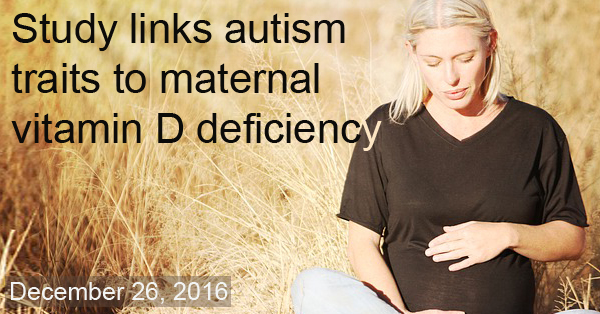Check out other stories from the Latest News
Maternal Vitamin D Deficiency Linked to ASD-Traits in Kids
By Chelsea E. Toledo, M.A. on December 26, 2016

Background: Vitamin D is an important nutrient that not only aids the development and maintenance of the bones but also brain function. While most people in the developed world get sufficient vitamin D from regular sun exposure, deficiencies can arise in areas with long, cold winters or when people avoid the sun altogether. Studies have demonstrated that vitamin D deficiencies during pregnancy are associated with an increased risk of cognitive impairment and motor development in the resulting offspring.
What’s New: On November 29, 2016, Molecular Psychiatry published a study examining the relationship between vitamin D deficiencies in expecting mothers and the presence of behavior traits associated with Autism Spectrum Disorder, or ASD, among their children. The researchers assessed vitamin D levels in preserved blood samples taken from 4,229 mothers mid-way through their pregnancies, as well as from cord blood samples taken at birth. They then screened the resulting children (who, at the time of the study, averaged six years of age) for ASD traits using the Social Responsiveness Scale, or SRS. They found that children whose mothers were deficient in vitamin D both mid-way through pregnancy and at birth had higher average SRS scores – indicating the presence of ASD traits – than those whose mothers either had no deficiency or were only deficient at one point in time.
Why it’s important: This is the first study to identify a possible link between the level of vitamin D in a mother’s blood mid-way through her pregnancy and autism-related behaviors in the resulting child. Future studies could evaluate whether routine, inexpensive vitamin D supplementation during pregnancy could reduce the incidence of ASD in children.
Help me understand :
| Source(s) : |
| Tweet |

